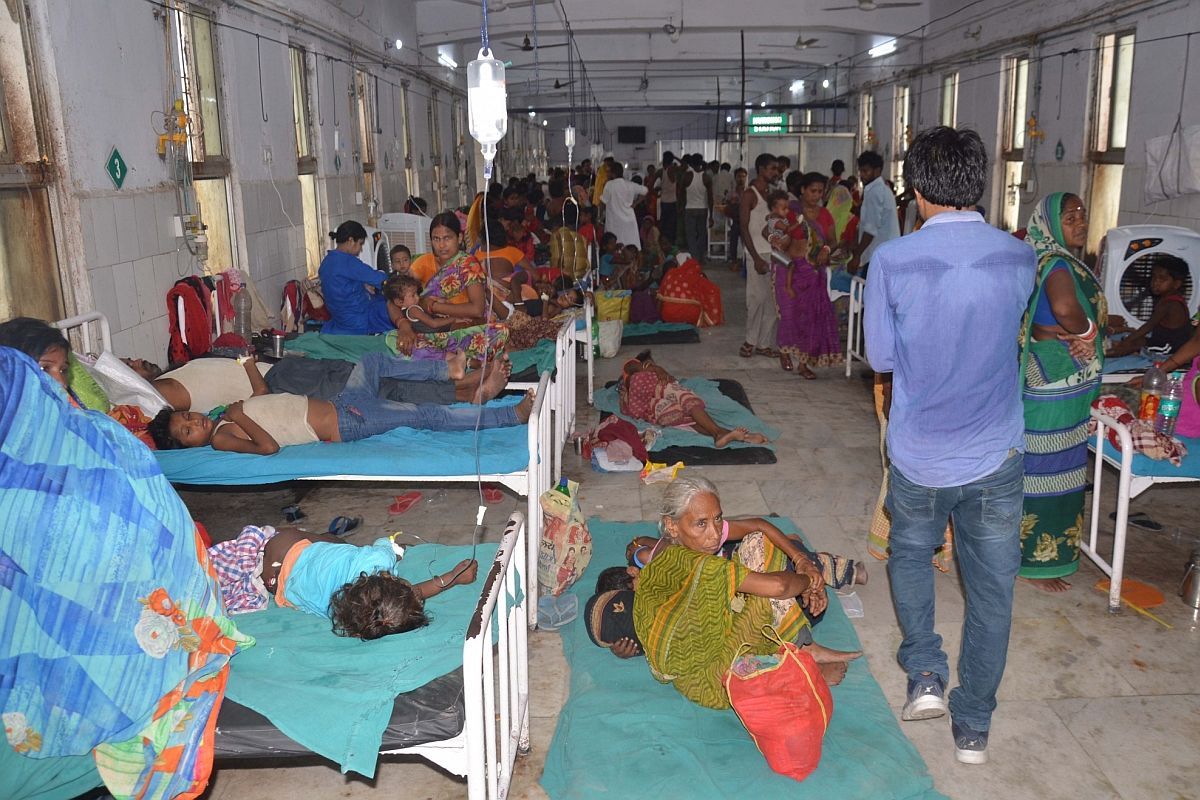SC issues notice to ED on Kejriwal’s plea against arrest, next hearing on April 29
A bench of Justices Sanjiv Khanna and Dipankar Datta issued notice to the ED seeking its response on Kejriwal's plea by April 24.
In contrast, the Supreme Court has put the health establishment on notice both at the Centre and in Patna.

Children with Acute Encephalitis Syndrome (AES) symptoms being treated at hospital in Muzaffarpur. (FILE Photo: IANS)
It has taken the Prime Minister a while to respond to the deaths of 150 children in Bihar ~ a modest estimate ~ due to the largely undiagnosed Acute Encephalitis Syndrome (AES). Let alone a searing attack on the Bihar government, less than incisive was Mr Narendra Modi’s presentation in the Rajya Sabha on Wednesday during the debate on the motion of thanks to the President’s address. Markedly, his statement comes 48 hours after the Supreme Court made the resounding observation that medical care is a “basic right” and that the death of 150 children is “unacceptable”. In terms of periodisation of social history, Mr Modi described AES as a “matter of sorrow and shame” and the “biggest failure” in seven decades (post-colonial India). Yet in contrast to the observations of the apex judiciary (coram: Sanjiv Khanna and BR Gavai, JJ), the Prime Minister’s statement was quite inadequate and barely touched on the basics. Fairly implicit is the fact that it is a national tragedy; yet his presentation appeared to labour under the weight of political compulsions. Certainly the presentation was not commensurate with the enormity of the tragedy that confronts Bihar, where the Bharatiya Janata Party is part of the ruling coalition. It sounded almost as an add-on to his highminded lament on the recent lynching in Jharkhand, where the BJP is in power.
In contrast, the Supreme Court has put the health establishment on notice both at the Centre and in Patna. “People have a basic right to medical care, nutrition, and hygienic environment and the death of such a large number of children is unacceptable. It has to be found out why such a situation is occurring in Muzaffarpur district.” Of diagnosis there has been little or nothing; of a cure even less. It has been rather too simplistic on the part of the district administration to blame it on the consumption of litchis on an empty stomach in a swathe of the state where malnutrition is endemic. Which explains the decision of the Bench to examine the issue as the outbreak is now almost an annual phenomenon.
The court has sought a response on four aspects of the larger issue of child mortality ~ availability of public medical care facilities, nutrition, sanitation, and hygiene. The ignoble trashes the noble. The level of nutrition of children ~ linked to the assimilation of learning ~ makes a mockery of food security and the midday meal. If the judiciary has to intervene even in matters of public health, there is life yet in the debate on judicial intervention in matters of governance. The short point must be that the executive has failed in Bihar… as it has in several other states. The Prime Minister must take the state government to task.
Advertisement
Advertisement